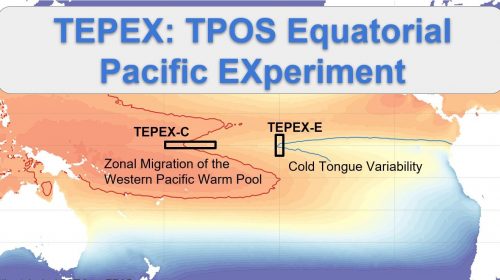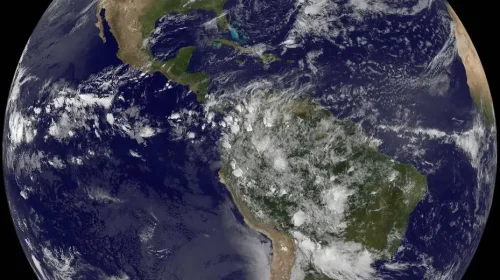The North Atlantic Ocean plays a crucial role in regulating regional and global climates, but how its internal climate variability might change due to human-caused warming is unclear. Scientists published a study in Nature Communications addressing this issue using the Community Earth System Model 2 Large Ensemble (CESM2-LE) to simulate sea surface temperatures (SST) under historical and future climate scenarios. They found that the range of possible SST conditions in the northern North Atlantic could more than double by the mid-21st century, leading to vastly different climate outcomes. These differences seem to be triggered randomly by atmospheric conditions and then amplified by interactions between the ocean, atmosphere, and sea ice.
The findings suggest that under future warming scenarios, the North Atlantic may exhibit much greater internal variability, making SST patterns and relationships harder to predict. However, the distinct SST trajectories identified around 2030 could enhance long-term climate predictions if these mechanisms are monitored and modeled accurately. This could significantly benefit climate adaptation strategies, helping governments and industries better prepare for future climate conditions. This team included Gokhan Danabasoglu of the National Center for Atmospheric Research and Elizabeth Maroon of the University of Wisconsin-Madison, who were supported by grants from the Climate Program Office’s Climate Observations and Monitoring (COM) program and Modeling, Analysis, Prediction, and Projections (MAPP) program, respectively. These awards focused on high-quality data sets for enhancing predictions and informing stakeholders and process-oriented diagnostics for climate model improvement and applications. The Climate Variability & Predictability (CVP) program also contributed funds for this work.
For more information, contact Clara Deck.
Image credit: NOAA








